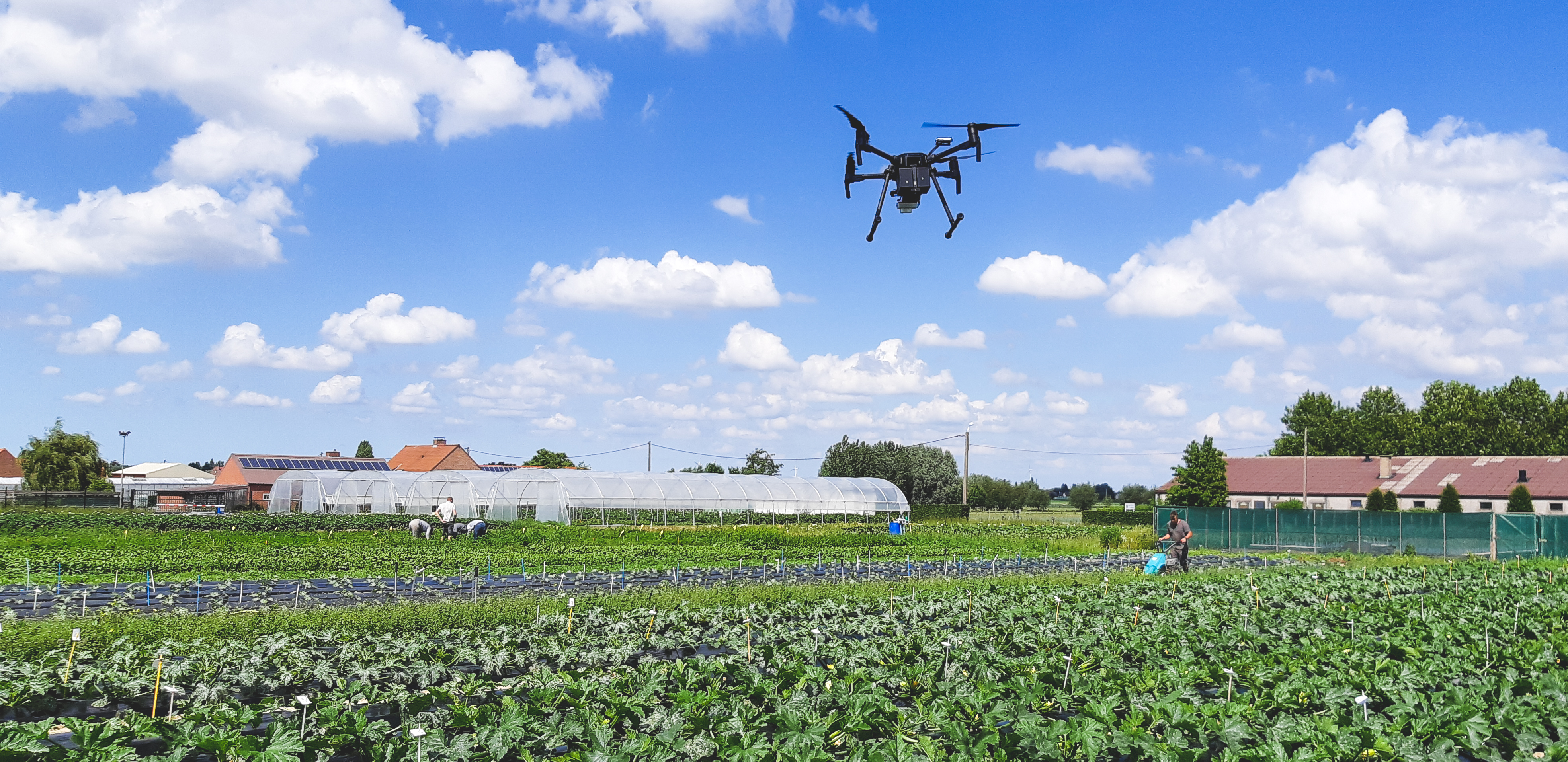Crop sensing protocol published
16 December 2021 by Admin

The INNO-VEG project is developing innovative methods for carrying out research into field vegetable and potato crops. The project has recently published a ‘Protocol’ which provides guidance on how crop sensing data can be used to assess crop performance. The guidance is aimed at researchers, agronomists and farmers who want to use crop sensing technology to assess their crops and aims to support them to make best use of the technology.
Project lead and ADAS soil scientist Lizzie Sagoo says “Crop sensors such as drone or tractor mounted sensors, can be a cost-effective way of monitoring crop performance, particularly if you want to assess larger whole field areas”.
The Protocol includes information on the use of crop sensing technology in the field and on the management and interpretation of the data. The information provided is based on the results of more than 60 field experiments carried out in 2019 and 2020 across the UK, France, Belgium and the Netherlands where traditional field measurements (i.e. hand harvest or experimental harvest machine assessments of yield and crop quality) were compared with crop sensing data.
These experiments covered a number of horticultural crop groups (including potatoes, brassicas, alliums, leafy salads, carrots, vining peas and cucurbits) and research priority areas (e.g. soil management, crop nutrition, cultivar evaluation and crop protection) in order to generate data to evaluate the suitability of crop sensing data to assess treatment differences in field experiments.
The experiments were set up to address the key questions relating to the use of crop sensing in field experiments including applicability across different crop types with different growth patterns (e.g root crops compared to leafy salads), use of different crop sensors and vegetation indices, timing of measurements and any additional requirements for ‘ground truthing’ to ‘calibrate’ the spatial crop data.
The use of crop sensors to assess field experiments allows upscaling of research from small plot to field scale, which in turn allows development of a farmer led approach to research. Inagro Precision Farming Specialist Eva Ampe says “We want to show farmers that they can set up simple split field or tramline trials to test new approaches such as varieties, establishment techniques or fertiliser management and then use crop sensors to assess the effectiveness of the treatments”. The Protocol can be downloaded from the project website.
In addition to the field experiments, the INNO-VEG project has set up a cross-border (the UK, France, Belgium and the Netherlands) network to facilitate innovation between the precision farming and sensor technology industries, research organisations and the field vegetable and potato crop sectors.
“The INNO-VEG innovation network focuses on facilitating innovation by realising the value of crop sensing technology in the delivery of field vegetable and potato research. We invite anyone with an interest in this area to register with the network via the project website,” says network lead Cor Van Oers from Delphy.
The INNO-VEG project has received funding from the Interreg 2 Seas programme 2014-2020 co-funded by the European Regional Development Fund under subsidy contract No 2S05-032.



